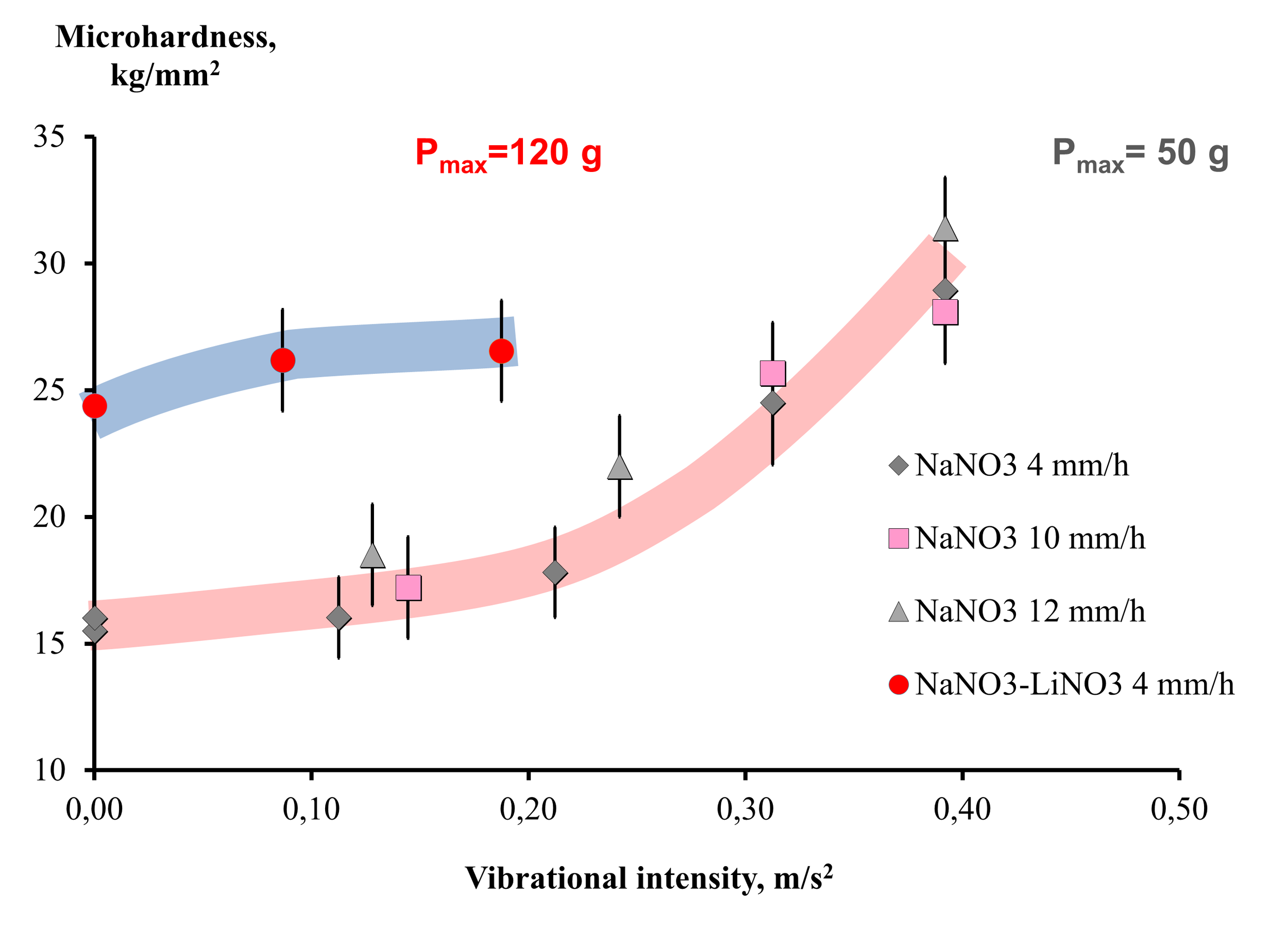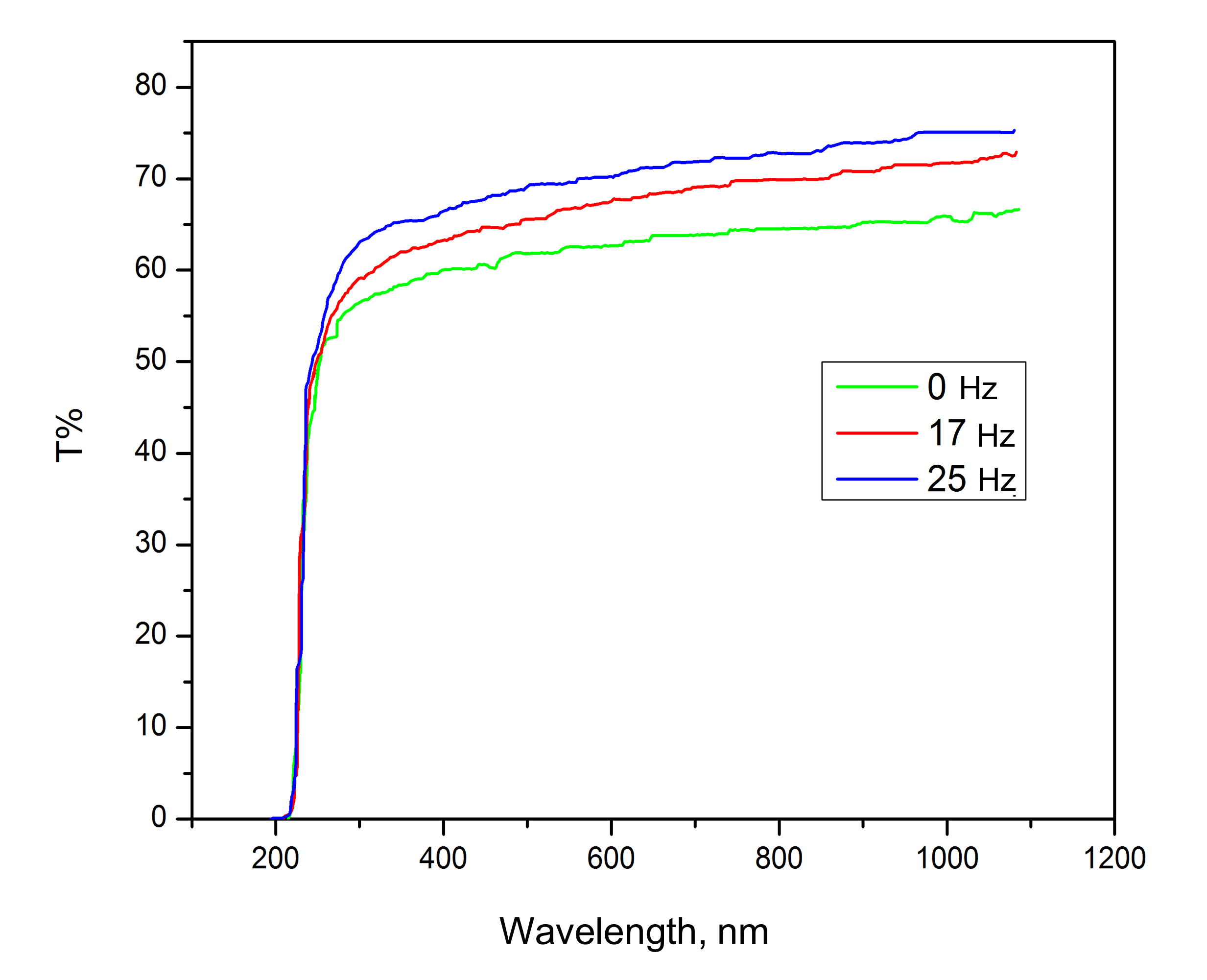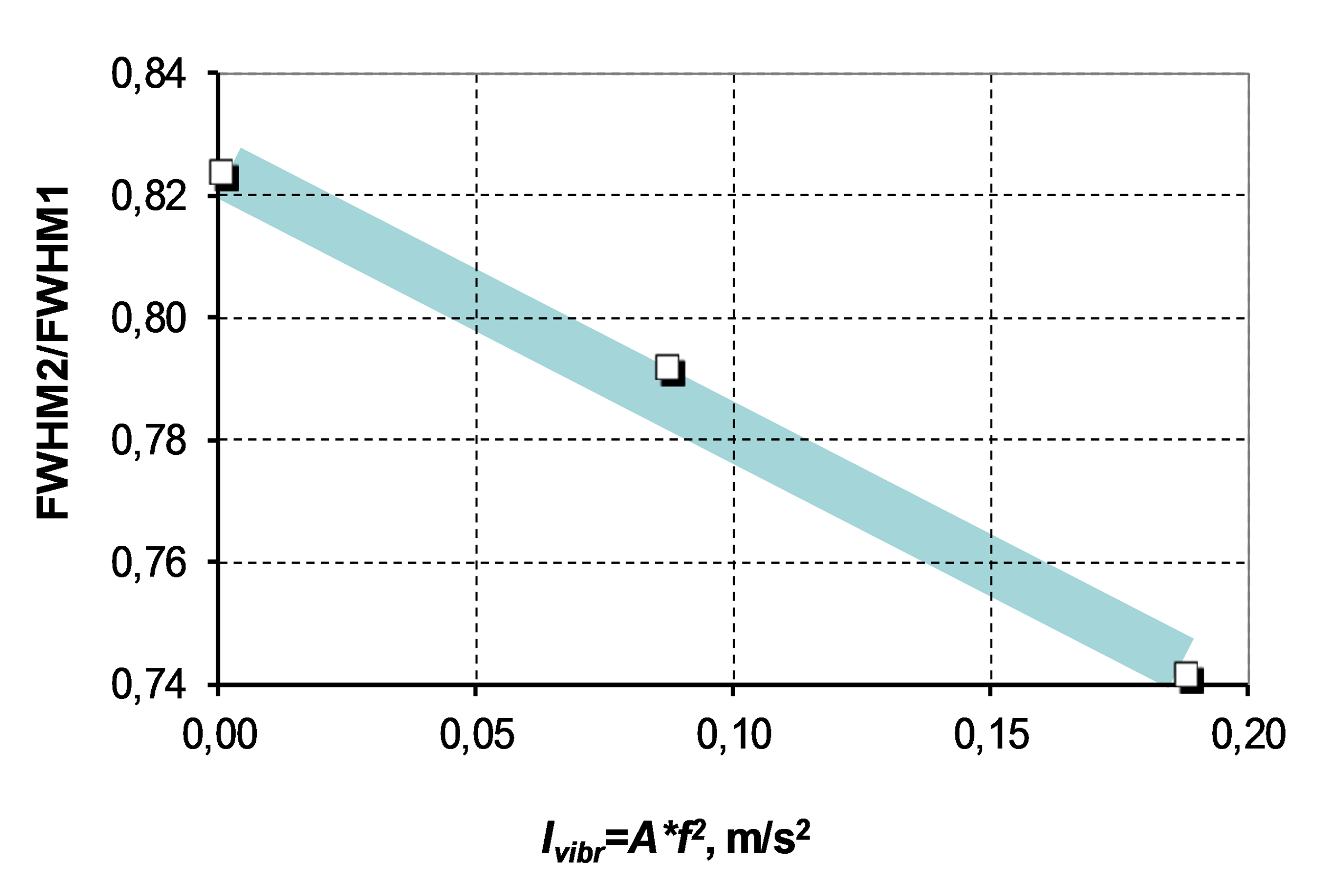| Search for content and authors |
Czochralski growth of NaNO3-LiNO3 solid solution single crystals using axial vibrational control technique |
| Evgeny V. Zharikov , Stanislav Belov , Chan Kong Khan , Elena Mozhevitina , Andrey P. Sadovskiy , Igor C. Avetissov |
|
Mendeleyev University of Chemical Technology of Russia, Moscow 123480, Russian Federation |
| Abstract | ||||||||||||||||||||||||||||||||||
Axial vibration control (AVC) technique is powerful tool for melt activation by low-frequency oscillation of inert baffle submerged into melt [1]. It was demonstrated that AVC grown crystals strongly differs in many properties comparing with the crystals grown by conventional directional solidification methods both Bridgman [2] and Czochralski [3] techniques. Single crystals of LiNO3-NaNO3 solid solutions were grown by AVC-CZ technique [3] using 0.3 mm amplitude and 0-25 Hz frequency oscillations of an inert aluminum disk in the melt. The crystal diameter was 30-35 mm with 30-35 mm length of every part grown at fixed AVC parameters. To analyze impurities distributions in crystals we cut them along. then cut a slice perpendicular to the growth axis [006], and then cut into small pieces 3x3x2 mm. Every piece was dissolved and analyzed using ICP-MS technique (NexION 300 D, Perkin Elmer). Thus, we got a distribution of all impurities in the crystal. The problem of different molecular weight impuirities distribution at crystal growth is very important for homogeneous doping. AVC technique produces vibrational flows in the melt could strongly change the impurity distribution pattern. We observed that various impurities acted differently at AVC application. Light molecular weight impurities (presented by Li) demonstrated significant leveling of concentration inside the crystal volume simultaneously with an increase of segregation coefficients (fig.1a). The similar leveling was observed for middle molecular weight impurities (presented by K) but their segregation coefficients changed insufficient (fig.1b). In case of heavy molecular weight impurities (presented by Ba) we also observed their concentration leveling (fig.1c) but segregation coefficients were nearly the same as for the conventional CZ grown crystals. Effect of vibrational intensity (I=A×f2) on vibrone and optical characteristics, microhardness, dislocation density of AVC-CZ LiNO3-NaNO3single crystals was studied. In case of AVC-CZ crystals we observed a decrease of dislocation density up to single values, an increase of microhardness up to 10 rel.% (fig.2), an increase of optical transmission up to 10 rel.% (fig. 3). 
Fig.2 Microhardness vs vibrational intensity of AVC-CZ grown (LiNO3)0,01 (NaNO3)0,99 crystals 
Fig. 3. Transmission of AVC-CZ (LiNO3)0,01(NaNO3)0,99 crystals grown at different frequencies and 0.3 mm amplitude We also observed an oscillation leveling of different vibron modes analyzed from Raman spectra, which indicated on a decrease of structure defects in crystal.

Fig.4. Ratio of FWHM2/FWHM1 of different vibron modes vs vibrational intensity of AVC-CZ grown (LiNO3)0,01(NaNO3)0,99 crystals The research was financially supported by Ministry of Education and Science of Russia by grant N 16.552.11.7046 [1] E.V. Zharikov In Crystal Growth Technology. Semiconductors and Dielectrics | ||||||||||||||||||||||||||||||||||
| Legal notice |
|
| Related papers |
Presentation: Poster at 17th International Conference on Crystal Growth and Epitaxy - ICCGE-17, Topical Session 8, by Igor C. AvetissovSee On-line Journal of 17th International Conference on Crystal Growth and Epitaxy - ICCGE-17 Submitted: 2013-03-13 21:10 Revised: 2013-07-25 12:41 |